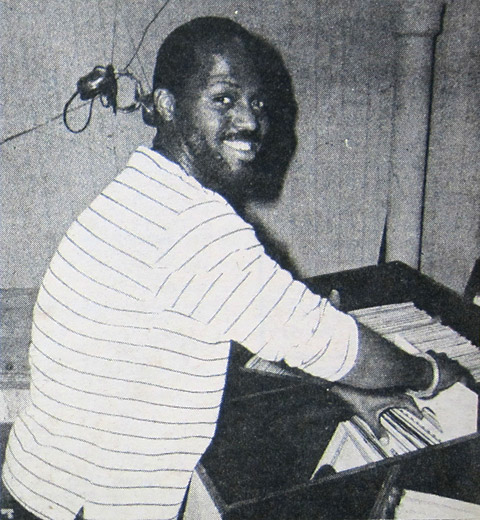Although he made his name in Chicago, Frankie Knuckles, known as the "godfather of house," was born Francis Nicholls on Jan. 18, 1955 in the Bronx. In some ways, he was better positioned than the rest to become an influential innovator. As a young disco DJ in New York, Knuckles came up alongside and under the tutelage of noted DJ Larry Levan, but while the late ‘70s and early ‘80s saw Levan entrench himself deeper in the sweet and bitter aspects of the New York disco establishment (by all accounts a journey of excess, ego and dance that eventually cost him his life in 1992), Knuckles headed west, purposefully pivoted away from disco, and set out to establish his own scene in Chicago.
Check our episode, "Midwest Electric: The Story of Chicago House and Detroit Techno" for Afropop's Hip Deep investigation of this scene. Knuckles was on the cutting edge in Chicago. The scene was wide open and in close proximity to the burgeoning dance scene cropping up in the post-industrial landscape of late ‘70s Detroit, making it the perfect location for Knuckles to transform disco into something new (and more marketable, as disco began to lose cred and be shunned by the mainstream culture). It was in these years that Knuckles perfected the propulsive, minimalist dance sound that came to be known as house music. The Warehouse in Chicago was the first "It" club of house culture, and Frankie Knuckles was the club’s first It DJ. In 1983, Knuckles opened a club of his own, the Power Plant, where he put the Southside sound on display, acclimating Chicago crowds to his NY style of adding fills to the top of a main beat, and incorporating drum machines into his routine.The late ‘80s and early ‘90s was a time of change for Knuckles--1987 saw the closure of the Power Plant, a four-month long residency at the U.K.’s Delirium, and his eventual return to New York to found Def Mix Productions with DJ and remix artist David Morales. Their pairing was successful, and ultimately resulted in Knuckles remixing singles from Michael Jackson, Diana Ross, Chaka Khan and more.
However, there was a downside to being the godfather of house. Major labels were slow to sign house artists, and many of Knuckles’ proteges eclipsed him in mainstream media long before he signed his 1991 contract with Virgin Records. This union was fruitful, however, producing the Knuckles hits “Baby Wants to Ride” and “The Whistle Song.” “Whistle Song” particularly took off, and when Junior Vasquez stepped down as the house DJ at Manhattan’s Sound Factory, Knuckles stepped in. Vazquez eventually returned, and Knuckles focused primarily on remixes until the release of his 2004 album, A New Reality, which included the track “Your Love,” later featured in the hugely popular video game Grand Theft Auto: San Andreas.
Musically, Knuckles' trail largely goes cold after that, but not when it comes to honors and accolades. In 1997, Knuckles won a Grammy for Remixer of the Year, Non-Classical. In 2004, he was honored by the city of Chicago with the renaming of a stretch of Jefferson Street outside of the old Power Plant building as Frankie Knuckles Way, and the declaration of August 25 as Frankie Knuckles Day (an effort that was aided in part by then State Senator Barack Obama). He was inducted into the Dance Music Hall of Fame for his outstanding achievements as a DJ in 2005. Complications due to diabetes prevented Knuckles from performing for most of the last decade, but his reputation has hardly faltered. News of his death on March 31 has saddened the dance music community and made national headlines throughout the morning, further illustrating his unparalleled position within the genre of house music--a style that has increasingly gained a place in the pantheon of great American art forms.








